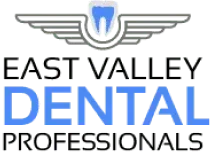Having a dental emergency?
We're here for you. Get fast relief and expert care for unexpected dental problems.
Know When to Act Fast:
Don't Wait: When Dental Problems Demand Immediate Attention
Not all dental problems require a trip to the dentist right away. However, certain situations require prompt attention to prevent further complications or permanent damage. Here are some signs that indicate a dental emergency:
- Severe toothache: A throbbing or constant toothache that doesn't respond to over-the-counter pain relievers can signal a serious infection.
- Cracked, broken, or knocked-out tooth: Damage to a tooth can be painful and expose the inner pulp to infection.
- Lost or damaged crown or filling: A missing or broken crown or filling leaves the tooth vulnerable to further decay and sensitivity.
- Excessive bleeding from the mouth: While some minor bleeding after a dental procedure is normal, excessive bleeding requires immediate attention.
- Swollen face or gums: Facial swelling or swollen gums can indicate an infection that needs prompt treatment with antibiotics.
- Trauma to the mouth or jaw: Any injury to the mouth or jaw, even without visible damage to teeth, should be evaluated by a dentist to rule out fractures or other complications.
What to Do in Case of a Dental Emergency
We understand the urgency of a dental emergency. That's why getting help should be quick and easy. Click the button below to connect with our team and take the first step towards resolving your dental issue.
Call Us immediately at
Finding Comfort During Your Emergency
We understand that a dental emergency can be a frightening and uncomfortable experience. Our dental team is dedicated to providing compassionate care and a calming environment. Our comfortable waiting area is designed to help you relax while we prepare to see you as quickly as possible.
Preventing Dental Emergencies
Don't wait for an emergency! Schedule your routine checkup today.
